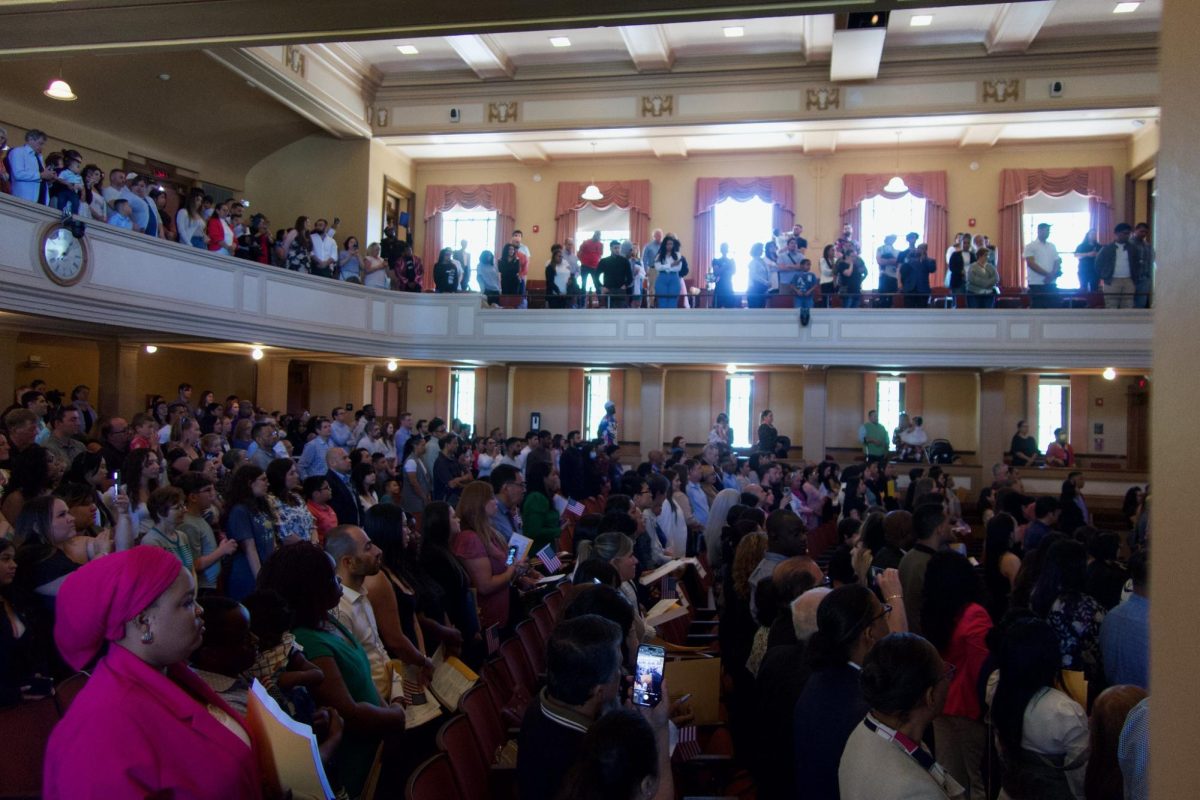He has a Ph.D in Communications, his bachelor’s and master’s degrees in sociology and history, and is a renowned professor of over 23 years at the University of Massachusetts. Chances are, if you’ve taken a sociology class at UMass (or anywhere in the country, for that matter), you have studied his concepts and arguments, read one of his books or articles, been to one of his lectures or are at least familiar with his work.
Sut Jhally is a professor of communications at UMass, but with such an impressive background, it might surprise some that Dr. Jhally chose to teach at this public college in Western Mass. After teaching at the Univeristy of New Hampshire for one year, Jhally opted for a change of scenery and was offered a position at UMass. Almost at once, he knew it was a good fit for him.
“I have never regretted for one moment being at UMass. I love the University and I love the surrounding area,” says Jhally. “In many ways, this is a unique place in the world as education and intellectual pursuits are the fabric of life for so many people here. I am also very proud of working at a public institution where so many people have been given opportunities to learn what they might otherwise not have.”
After listening to Jhally speak for even just a few minutes, it becomes quite evident that he does not just want to simply get his opinions out there; he wants to eliminate ignorance and give people the adequate tools they need to form opinions of their own.
Perhaps that is the reason why he decided to use his talents, degrees and extensive knowledge and research to teach students and instill in them a way of thinking much different than what they are used to, and especially different than the ideas that the media and government have drilled into their minds.
“I don’t believe in a divide between teaching and research,” said Jhally. “I started teaching as a graduate student and loved it from the start, as it forced me to translate the high level theoretical material I was looking at in my research into a form that someone who was not an expert would understand and relate to.”
The material that he is trying to get across to people is important and critical for everyone to know about, especially young adults, like college students. They, along with teenagers, are unfortunately the main target of the negative messages music videos and advertisements are sending the young people in our world today.
“It was very exciting to see that if presented in a way that students could relate to, knowledge could end up having an effect beyond the ‘ivory tower,'” Jhally says. “And that perspective has informed my film work as well.”
Teaching is but a single bullet point on this distinguished man’s r’eacute;sum’eacute;. Jhally is also the founder, president and executive director of the Media Education Foundation (MEF). This is the organization that he began in 1991, with one basic goal in mind: to educate the public on various controversial, but often overlooked, topics of concern, such as violence and sexual exploitation in media (especially in music videos), commercial images and advertising, political issues, the 9/11 terrorist attacks and the problems with the pop culture that surrounds us.
With so many controversial topics, disapproving opinions, and frank criticisms at hand, it may seem as if Jhally would have to overcome many obstacles and fight to get his messages across. Fortunately, this was not the case.
“No one was being discouraging,” says Jhally. “It wasn’t that difficult to launch the MEF because there was not a pre-existing model that I was trying to plug-in to. I was kind of making it up as I went along and responding to situations as they developed.”
One of Jhally’s most important films that he has created to date is “Dreamworlds: Gender/Sex/Power in Music Videos.” The film attempts to “examine the stories contemporary music videos tell about girls and women, and encourages viewers to consider how these narratives shape individual and cultural attitudes about sexuality.”
He has made three of these installments, with the latest and most prominent one released last year. These controversial videos created quite a stir when they were first released – so much so that MTV attempted to sue Jhally when “Dreamworlds I” was first produced.
Jhally maintains that his work is not to force his ideas, beliefs and morals on other people. Instead, they seek to offer young adults a powerful tool so that they may understand the prominent and ceaseless influence that modern day music videos and pop culture have on them and society. “Dreamworlds,” along with the dozens of other films Jhally has produced, is meant to “inspire viewers to reflect critically on images that they might otherwise take for granted.”
Pop culture aside, another significant aspect to Jhally’s views and background is his scrutiny of politics and the American government. He has written countless articles on the topic and even has multiple films on it, including “Hijacking Catastrophe: 9/11, Fear and the Selling of the American Empire” as well as “Peace, Propaganda, and the Promise Land: U.S. Media and the Israeli/Palestinian Conflict.”
Both are highly informative and critical films and shed a truly different light on past and popular beliefs about our country. The videos are eye-opening and crucial, but above all else, they are powerful.
These scathing political opinions did not simply appear in Jhally’s mind one day. They were acquired, shaped and built over the years with the help of Jhally’s two most influential persons: Stuart Hall, a British cultural theorist, and Noam Chomsky.
Although it’s difficult to single out one or two individuals because Jhally’s influences come from so many different places and people, those two men are the most inspirational and have shaped his work and way of thinking most prominently.
“Stuart Hall was very influential in my early thinking,” said Jhally. “He insisted on doing research in the most objective, analytical way when you are dealing with the most pressing and important issues for the society and communicating that knowledge beyond the academy to ordinary people to make ideas matter beyond the academy.”
Chomsky has also been very important for Jhally in terms of how he lives what he believes to be an impeccable, intellectual and political life.
“His courage in always dealing with the most important political issues of the day has inspired me in my own work,” says Jhally.
The professor has also been lucky enough to work with both Hall and Chomsky in his films.
Given the present condition of the American government and political crisis in which the very foundation of democracy appears to be at risk, it has never been more important for individuals of power and persuasion to take a stand in addressing the major issues of our time. It is critical for public intellectuals to question authority and hold it responsible for its consequences.
Jhally has proved himself time and time again to be one of these individuals, and is constantly concerned with “social justice attempts to break down the illusion of unanimity that seems so prevalent in the dominant media, all levels of government, and the commanding heights of corporate power.”
As one of the most important theoreticians of cultural studies, Jhally’s work has influenced so many people, and changed countless minds and opinions, as well as altered the way people view their culture, society and the world around them.
“I am very happy with the work that I do and the work that I have done,” says Jhally. “Our job is to give people the analytical tools to make their own moral and ethical judgments about how to act in the world. If my work has allowed people to do that in a conscious way and changed they way they thought they could act in the world, I’d settle for that.”
For more information on Professor Jhally, as well as additional access to his books, articles, films,
lectures, movies and interviews, check out sutjhally.com.
Michelle Abbasciano can be reached at [email protected]






